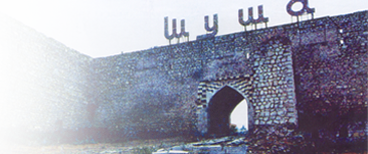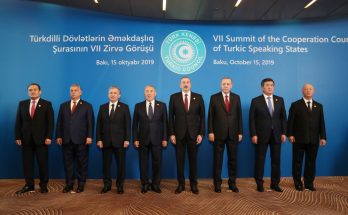 “In 2009 there were indeed more higher level meetings on Karabakh than ever before”, said Sabine Freizer is Europe Program Director of the International Crisis Group in her article “Turkey-Armenia Relations: All Eyes Now on Ankara”.
“In 2009 there were indeed more higher level meetings on Karabakh than ever before”, said Sabine Freizer is Europe Program Director of the International Crisis Group in her article “Turkey-Armenia Relations: All Eyes Now on Ankara”.
The Turkish government considers that it is now Russia’s turn to pressure Armenia into compromises and the start of a withdrawal of occupied territories, said Freizer. “But even if Moscow does encourage Yerevan to make more compromises, such as it may when Russian Foreign Minister Sergey Lavrov visits Armenia this week, this is unlikely to be enough to secure agreement on the comprehensive Document on Basic Principles being promoted for years by the OSCE. On 12 January, the Constitutional Court of Armenia recognised the Turkey-Armenia protocols to establish diplomatic relations and develop bilateral relations to be in conformity with Armenian legislation. All eyes are now on Turkey, where the protocols are currently being reviewed in the Parliament’s Foreign Affairs Committee, but there is little sign that they will leave those chambers. Doubts have been steadily growing about Ankara’s willingness to abide by the commitments it made in August and October to establish diplomatic relations, open its long-closed border and establish bilateral commissions, including one on the historical dimension. According to Turkey, this is because Armenia has not made sufficient concessions to resolve the long standing Nagorno-Karabakh conflict with Azerbaijan”.
According to Freizer, the linkage between Turkey-Armenia reconciliation and Nagorno-Karabakh conflict resolution is not part of the protocols, but Prime Minister Erdogan emphasized this linkage in his statements.
“Turkish officials also put much hope in facilitating conflict resolution through their own Caucasus Cooperation and Stability Platform, whose first high level meeting is expected in the next couple of months. But at this point it is unclear why a new international forum will succeed where the OSCE has failed for the past fifteen years”, said Freizer and added: “By insisting on linking Turkey-Armenia reconciliation and the resolution of the Azerbaijani-Armenian Nagorno-Karabakh conflict, Ankara is doing little to make progress on either fronts. Luckily it is not too late to act and Turkey still has several weeks until mid-April to catch up with Armenia in putting the protocols into law. But failure to do so will unravel the decade-long process of Turkey-Armenia reconciliation, essential for future stability in the South Caucasus, and tarnish Turkey’s image as a serious regional foreign policy actor – just at a the time when it is trying to develop its “peace and stability” efforts throughout its neighbourhood”, said Freizer.
АРА




